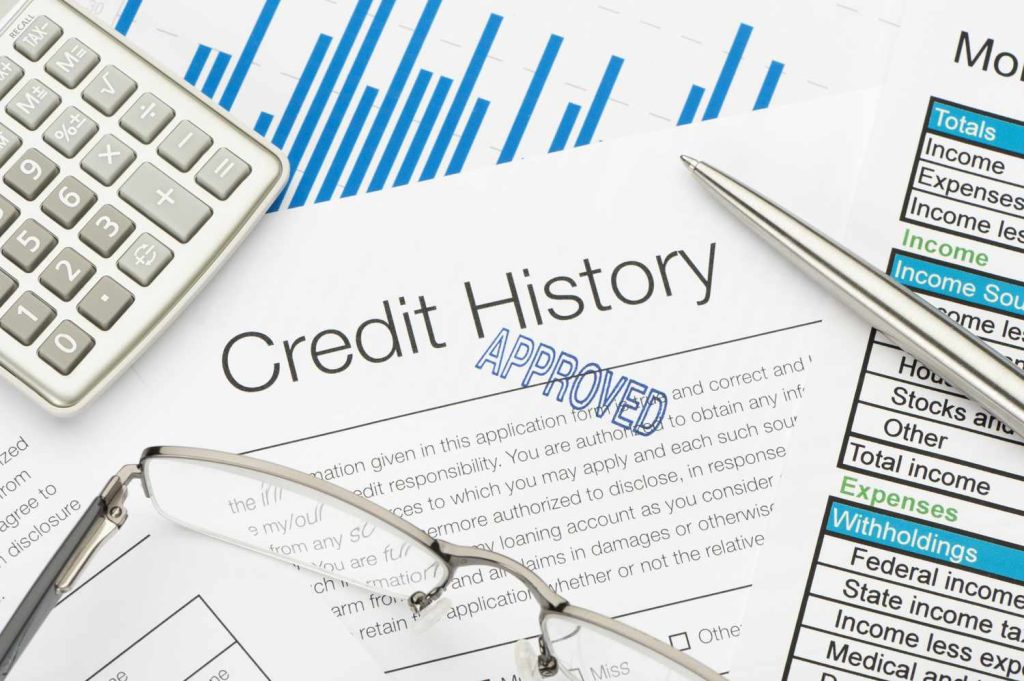Building a solid credit history is crucial for young people and students, as it opens doors to various financial opportunities such as loans, credit cards, and mortgages. However, establishing credit can be challenging for those with little to no credit history.
This guide aims to provide practical tips and advice on how students and young individuals can start building their credit history effectively.
Build your credit history

Importance of Credit History
Having a credit history is essential for accessing financial products and services. Lenders use credit history to assess an individual’s creditworthiness and determine their ability to repay loans or credit. Without a credit history, it can be difficult to secure loans, mortgages, or even basic utilities such as broadband or mobile phone contracts.
Strategies for building Credit:
- Student accounts: Utilize specialized student accounts offered by banks, which often come with perks such as 0% overdrafts. These accounts provide an opportunity for students to begin establishing a credit responsibly.
- Credit cards: Consider applying for a credit card designed for individuals with limited credit history. Using a credit card responsibly, such as making timely payments and keeping balances low, can help build credit over time.
- Register to vote: Ensure registration on the electoral roll, as it is a crucial step in building credit history. Lenders often use this information to verify identity and assess creditworthiness.
Responsible Credit Management:
- Timely payments: Always make payments on time, whether it’s for credit cards, loans, or utility bills. Late or missed payments can have a negative impact on credit scores and make it harder to build credit.
- Financial stability: Maintain stability by using consistent addresses and contact information across financial accounts. Lenders prefer individuals who demonstrate stability and reliability in managing their finances.
- Regular monitoring: Regularly check credit reports from credit reference agencies to ensure accuracy and monitor progress in building credit history. Address any discrepancies or errors promptly to avoid potential obstacles in the future.
Avoiding common pitfalls
- High credit utilization: Keep credit card balances low relative to credit limits to maintain a healthy credit utilization ratio. High utilization can signal financial strain to lenders and negatively impact credit scores.
- Closing old accounts: Avoid closing old credit accounts, especially those with positive payment history, as they contribute to the length of credit and overall credit mix.
- Applying for multiple credit products: Limit applications for credit products to avoid multiple hard inquiries, which can lower credit scores. Instead, focus on targeted applications for products aligned with current financial needs and eligibility.
Long-term credit building strategies
- Diversifying credit mix: Consider diversifying credit by incorporating different types of credit accounts, such as installment loans (e.g., student loans, car loans) and revolving credit (e.g., credit cards). A diverse credit portfolio demonstrates responsible credit management.
- Establishing payment history: Consistently making on-time payments over an extended period demonstrates reliability and strengthens credit history. Aim to establish a track record of responsible payment behavior across various credit accounts.
- Building emergency savings: Creating an emergency fund can provide a financial safety net and prevent reliance on credit in times of unexpected expenses. Having savings to cover emergencies reduces the need for additional borrowing and supports overall financial stability.
Additional tips
- Avoid payday loans, as they can have detrimental effects on credit scores and future loan applications.
- Use eligibility calculators before applying for credit cards to assess the likelihood of approval without affecting credit scores.
- Seek assistance from lenders if experiencing financial difficulties, as communication and proactive solutions can mitigate negative impacts on credit history.
Establishing a solid credit history is not just about accessing credit; it’s about laying the groundwork for financial stability and independence. By diligently following the steps outlined in this guide and adopting responsible financial habits, young individuals can set themselves up for success in the long run.
Building credit is a journey that requires patience and perseverance. It’s about more than just obtaining loans or credit cards; it’s about demonstrating reliability, trustworthiness, and financial responsibility to lenders and financial institutions. Each on-time payment, each careful credit application, and each proactive step taken to monitor and manage credit contribute to shaping a positive credit profile.
Moreover, the benefits of a good credit history extend beyond just financial products. A strong credit history can facilitate renting an apartment, obtaining favorable insurance rates, and even securing employment in some industries. It’s a foundational element of financial health that opens doors and provides opportunities for growth and advancement.





